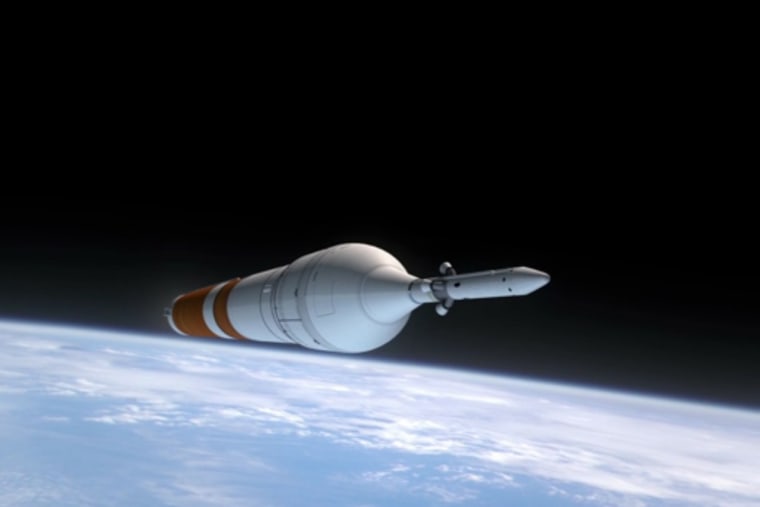The last man on the moon, the first space shuttle pilot and six other space leaders signed an open letter Friday supporting the candidacy of Republican presidential primary contender Mitt Romney.
Romney is competing in Florida this week for the GOP nomination, duking it out with the other Republican front-runner, Newt Gingrich.
"Restoring the U.S. space program to greatness will require the leadership, management skill, and commitment to American exceptionalism possessed by only one candidate in this race: Mitt Romney," the letter reads. "We support Mitt's candidacy and believe that his approach to space policy will produce results instead of empty promises."
Signatories include Gene Cernan, the last man to walk on the moon, as well as the first space shuttle pilot, Bob Crippen, and former NASA Administrator Mike Griffin.
Players in the commercial space industry, including Eric Anderson, chairman and chief executive officer of space tourism firm Space Adventures; and Mark Albrecht, chairman of the board of satellite communications provider USSpace, also signed the letter. Other signers include Scott Pace, director of the Space Policy Institute at George Washington University (who also serves as chairman of the Romney Space Policy Advisory Group); Peter Marquez, former director of space policy for the National Security Council; and William Martel, professor of International Security Studies at Tufts University.
"We have watched with dismay as President Obama dismantled the structure that was guiding both the government and commercial space sectors, while providing no purpose or vision or mission," the group wrote. "This failure of leadership has thrust the space program into disarray and triggered a dangerous erosion of our technical workforce and capabilities. In short, we have a space program unworthy of a great nation."
They argue that Romney's plan will promote U.S. leadership in space.
"As president, Mitt Romney will facilitate close collaboration not only within the government’s civil and national security space sectors, but also with the private sector and with research institutions," the letter reads. "He will create conditions for a strong and competitive commercial space industry that can contribute greatly to our national capabilities and goals."
In a speech today in Cape Canaveral, Fla., Romney stressed the importance of such collaboration, saying he wasn't yet ready to lay out a sweeping vision for NASA and the future of American spaceflight. Rather, as president, he would talk to leaders from the military, academia, the private sector and NASA to help create and map out that vision.
"I will do that to get the job done right, to make sure we protect our interests, protect our future, protect our health and protect ourselves from threats from space," Romney said in the speech, which was webcast online by the newspaper Florida Today.
Romney and the other GOP hopefuls debated policy, including their ideas for NASA, on Thursday night in Florida.
While Gingrich has said he plans to aim high in space and establish a manned moon base by 2020, Romney said such projects are too extravagant.
"I'm not looking for a colony on the moon," Romney said during the debate. "I think the cost of that would be in the hundreds of billions, if not trillions. I'd rather be rebuilding housing here in the U.S."
Follow Space.com for the latest in space science and exploration news on Twitter and on .
